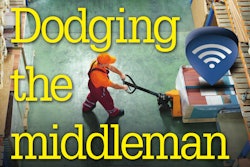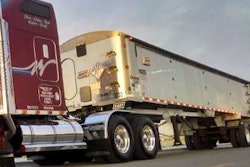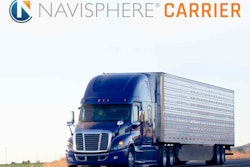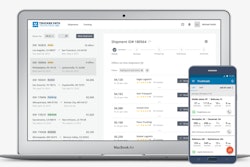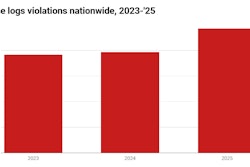The so-called “Uberization of trucking,” or the profusion of software to enable more automation in the load-matching process, speaking generally, has been a growing topic of discussion since Overdrive‘s coverage of the subject in the April 2015 issue. Last week at Truckstop.com’s Connected user conference, Stifel Research Director John Larkin named “digitalization” No. 2 in a list of 10 major factors that will likely influence freight transport in big ways in the coming years.
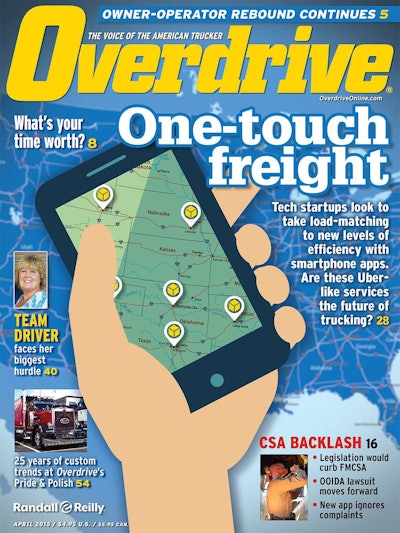 Follow this link for all of our coverage of tech-enabled brokerage and other “uberized” freight matching services and attendant issues.
Follow this link for all of our coverage of tech-enabled brokerage and other “uberized” freight matching services and attendant issues.Partly echoing portions of Overdrive‘s coverage of the phenomenon, Larkin pointed to a central problem in the freight-matching landscape as it exists today for many new companies developing communications-tech platforms. Many such companies getting involved tend to see load matching “as a very simple problem, like the Uber problem,” he said.
But getting a truckload worth of freight on the truck of an authorized long-haul carrier and to its destination is pretty far away in general terms from finding a ride home across town. Tech start-ups are often “missing the complexity of most freight moves and will lose a lot in the translation because of that,” Larkin said.
The Wall Street Journal recently channeled the hype around the “disrupting” technologies in a story titled “Startups Accelerate Efforts to Reinvent Trucking Industry.” (You’ll need a WSJ subscription to read the full story at that link.) Who will be reinvented out of business by these technologies? Freight middlemen like brokers, the story notes, as is often assumed.

At once, what’s lost in much of the coverage of new startup entities is that most of them are positioning in the business as brokerages themselves, and Jason Cahill of Traansmission, one such tech entity that started its life just as a broker would — by going after shippers’ freight business — responded to the Wall Street Journal story with a counter-argument expressing sentiment similar to that of Larkin. His open letter response to the story noted he “used to be one of these start-ups trying to accelerate and reinvent the trucking industry.”

“What if they flew back through Germany and filled up?” he asked himself at the time, casting the problem as one of optimization of existing cargo space. After he got out of the army and got a degree in data network design, he recognized similar issues in trucking via his sister, who worked for a couple different trucking companies.
Traansmission launched and, as he wrote in the open letter, “I was on cloud 9” after a time, with “dozens of customers, revenue flowing, but I lost a huge customer because a trucker using my app didn’t show up – he wasn’t invested in my company” on a personal level “and didn’t care whether the load was moved or not. This is a challenge that will prove a significant roadblock for all companies claiming to be the ‘Uber for trucking.'”
Cahill has retooled Traansmission to serve already existing brokerages who may not have the capacity internally to develop tech tools to help cement their already existing relationships with shippers and truckers and reduce their own costs, thus costs to both shipper and trucker customers. The potential windfall for the trucking customers in all of this could be better margins on the freight.
Two brokers his company’s worked with since the change are Bargo Logistics (Atlanta) and Tadmore Transportation (Toledo, Ohio). The latter is “eager to cut ties with their load boards and more traditional systems” for matching freight to trucks, Cahill says. “Everybody has their own sort of patience level, and [Tadmore sees] the long-term value of what we’re doing. It’s great if I can get the guys off the phone doing check calls” with live mobile tracking enabled by the application and operators’ smartphones. “I can get them doing more for business – give them time to focus on growing the freight volume. That’s money in the bank.”
Truckstop.com-affiliated Real Time Freight, offering dynamic transportation management systems/software that can be custom-tailored to broker and/or carrier operations, has increasingly been delivering on similar goals. The all-owner-operator Farm2Fleet trucking company, based in Chattanooga, Tenn., says company head Bill Hood, has been at work with Real Time Freight building a custom in-house marketplace to serve as the central point of connection between its shipper customers and owner-operators.
“We say the only reason we’re called a trucking company is that the government tells us we’re one,” Hood said at a carrier panel at the Connected event last week. “We look at ourselves as a customer service and training organization – we’ve been working with Truckstop.com and Real Time Freight to become the most technologically advanced company out there.”
Hood detailed how the “private marketplace” for Farm2Fleet-leased owner-operators will ultimately work. “With Real Time Freight, we’ll have our private marketplace load board where customers can place their freight on our board and drivers can pick and choose,” utilizing smartphone connectivity to offer customers “visibility into where the trucks are.”
The Farm2Fleet business model, says Hood, is “like Landstar” in that “drivers can pick and choose loads, though we don’t have a captive agent model. We work with outside 3PLs and brokers as our sales force.”
Owner-operators at Farm2Fleet are encouraged to develop close relationships with the brokers the company utilizes, and those relationships will be likely to continue within the marketplace, if company emphasis on such is any indication.
It’s that focus on close business relationships that Cahill sees as a key feature of the over-the-road trucking industry that just won’t be reproduced by a one-size-fits-all application like Uber, and tech companies might be wise to recognize that about the long-haul market. “Everybody needs to know their role – what you’re good at and what you suck at,” Cahill says. Playing baseball as a kid, “I was a pitcher – I wasn’t the strongest hitter. Similarly in this brokered freight space, I know my role – my role is not managing a relationship with Heinz ketchup over 30 years. I don’t have the luxury of having been in the space for 30 years.”

